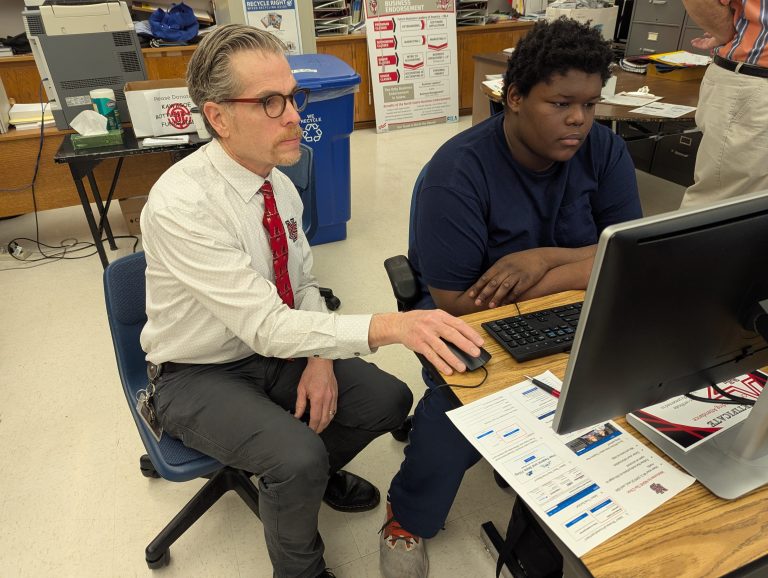Electric truck charging depot planned for Salem

Salem may soon be a pit stop for truckers seeking to recharge their vehicles while delivering goods up and down the West Coast.
WattEV, a southern California company focused on electrifying the trucking industry, plans to build a charging depot off Interstate 5 in Salem that could power about 40,000 trucks per year.
Earlier this year, the company received a $6.5 million grant from Oregon’s Department of Environmental Quality for the project, which is still in the planning phase. The total project cost would be about $10.6 million, according to the grant application.
Company executives expect the site to be open in mid-2025.
The charging station is part of a string of similar stations the company is developing along Interstate 5 in California, adding to an existing depot that opened earlier this year at the Port of Long Beach.
Their goal is to have a corridor of electric infrastructure that would allow truckers travel from the Mexican border up to Washington, enabling more drivers to use electric vehicles.
“We’re building with the future in mind,” said Salim Youssefzadeh, CEO of WattEV.
The announcement comes as Salem has become a regional hub for transportation, with warehouses for Amazon, FedEx and Home Depot at the Mill Creek Corporate Center in southeast Salem. Another large warehouse for Dollar General is planned for the area. Chemeketa Community College in 2019 launched a commercial truck driving program in response to a high need for local jobs in the transportation industry.
Oregon in 2021 adopted rules requiring manufacturers of medium and heavy-duty trucks to sell a certain percentage of electric trucks starting in 2024. The percentage varies from 5-9% depending on manufacturer type and increases annually.
The Salem site would have 25 combined charging system, or CCS, chargers. That’s the current standard for electric vehicles, and take two to three hours to charge a truck.
It would also add five chargers using the newer megawatt charging system, a standard that’s being developed for vehicles with larger batteries, like trucks. Not all trucks are compatible with that new system, but for those that are, Youssefzadeh said they can fully charge a truck in 30 to 45 minutes — about the length of a typical trucker’s break at a rest stop.
The charging stations are one part of WattEV’s work to electrify the industry. The company also purchases trucks and rents them to owner-operators, charging a fee that includes access to WattEV charging stations along the I-5 corridor.
They currently have 14 Nikola electric trucks based out of their Long Beach facility, with dozens more ordered.
The Salem charging facility would be open to the public, meaning any trucker could stop and charge there for a fee. The company is also in talks with some local distributors and companies who are hoping to electrify their fleets and may be interested in a contract for a charging facility.
WattEV is nearing a purchase of a site in Salem, Youssefzadeh said, after an initial spot in north Salem didn’t pan out. He declined to give the address until the purchase is finalized.
The project will “have direct impact on improving air quality in the communities and neighborhoods along freight corridors in and around Salem,” the company wrote in its state grant application.
The station was one of 14 projects awarded a state grant in March through the state’s Zero Emission Fueling program, which aims to improve electric charging infrastructure in Oregon. A total of $13.3 million was granted toward projects aimed at medium and heavy-duty vehicles, with WattEV being the largest recipient.
Contact reporter Rachel Alexander: [email protected] or 503-575-1241.
SUPPORT OUR WORK – We depend on subscribers for resources to report on Salem with care and depth, fairness and accuracy. Subscribe today to get our daily newsletters and more. Click I want to subscribe!

Rachel Alexander is Salem Reporter’s managing editor. She joined Salem Reporter when it was founded in 2018 and covers education, economic development and a little bit of everything else. She’s been a journalist in Oregon and Washington for a decade and is a past president of Oregon's Society of Professional Journalists chapter. Outside of work, you can often find her gardening or with her nose buried in a book.



